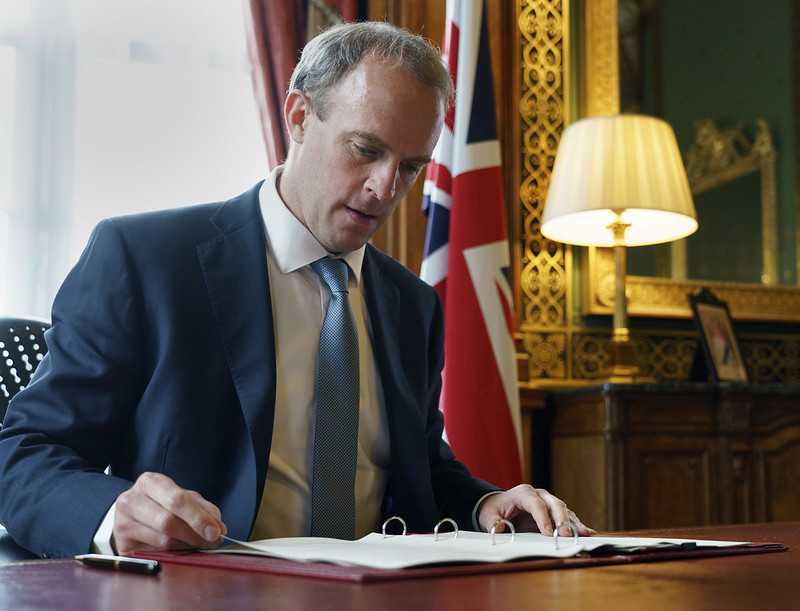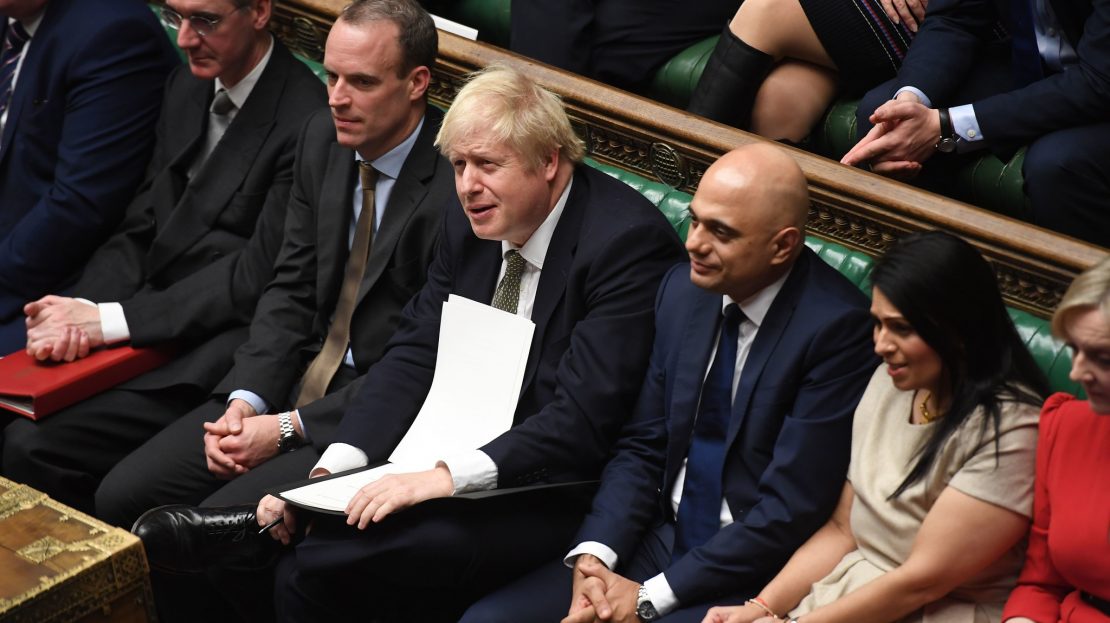It’s been called ‘the Bill of Rights Bill’, ‘the Rights Removal Bill’, ‘worse than useless’, ‘a complete mess’, ‘a political nightmare’. The chances are that in the last year you’ve heard one of these statements describe the Bill of Rights, which is set to return to parliament shortly and replace the Human Rights Act 1998 (HRA). Here is what it will mean for rights across the UK if passed.
Its author, justice secretary Dominic Raab, claimed that the ‘poorly written’ Bill was a promise left over from the Conservative 2010 manifesto. The Bill, which was brought forward by Raab at the beginning of 2022 following a controversial consultation on the HRA. If passed the Bill of Rights will replace the Human Rights Act, which stemmed from the European Convention on Human Rights, which was established after World War II. The HRA is the landmark legislation that prevents people in the UK having their rights trampled by the state. Raab move to replace it with a new Bill of Rights has been described as a ‘power grab’ and a ‘con’.
The Bill was shelved when prime minister Liz Truss formed a new government in September, which saw Raab replaced as justice secretary. Just 44 days later, prime minister Rishi Sunak began appointing a new government, which reinstated Raab to his previous post. It wasn’t long before Raab announced that the Bill would return. The reemergence of the Bill is politically vague, but Raab has confirmed that it will return ‘shortly’ – it’s rumoured to return before parliament in December.
What does it mean for our rights?
One of the main effects of parliament potentially passing the Bill of Rights would be that positive obligations (BORB clause 5) would be diluted. Positive obligations place a duty on public authorities to proactively safeguard people’s rights.
There will be less onus on public authorities proactively to safeguard our rights
These positive obligations are a vital protection for everyone living in the UK. In the past they have led, for example, to victims of police violence receiving justice under Article 3 of the European Convention on Human Rights (ECHR) – the right to freedom from torture, inhumane and degrading treatment. They have also led to investigations into human trafficking – an illegal practice that breaches Article 4 of the ECHR, which prohibits slavery and forced labour.
Justice will be less accessible and it will deflect scrutiny from the government
The Bill will also make justice less accessible for everyone and deflect scrutiny from the government. Clause 15 of the Bill of Rights proposes a ‘permissions stage’, which would act like a filter to throw out certain cases before they even got to court. The Bill states that no one is to be allowed to bring proceedings against a public authority unless they have sought and been granted permission from the court that the proceedings should be held. Under the proposed legislation, if that person is rejected by the intended court, they are allowed to appeal to the court but are prevented from appealing to any other court.
Another way in that the Bill will affect people trying to access justice is by introducing a threshold test, which will mean additional cost. The proposal comes against a backdrop of years of cuts to legal aid, which has left many unable to access justice.
It is attack on future survivors
Shadow justice minister Ellie Reeves attacked the Bill in the House of Commons. Reeves said: “This Bill of Rights ‘con’ isn’t just an attack on victims of crime who the state has failed to protect. It’s an attack on women. Women have used the Human Rights Act to challenge the police when the police have either failed or refused to investigate rape and sexual assault cases.”
It will make deportations easier
The Bill, if passed, would make it easier for the government to deport people from overseas who had served their time for a crime in the UK. In order to invoke their right to family life (Article 8 of the HRA), the individual’s loved ones, in the future, would have to prove that a family member would come to extreme, exceptional, overwhelming and irreversible harm if they were removed from the country.
Raab claims that the Bill will “crack down on claims” made by “dangerous criminals” to a right to family life in an effort to avoid deportation. Currently there is a 70% success rate for appeals brought forward by foreign offenders who invoke their rights under the HRA.
This statistic is being used to suggest that violent criminals are ‘getting off the hook’, so to speak, and released back into communities, but that is not accurate. Anyone who has served a 12-month sentence or over is eligible for deportation, regardless of whether or not the crime was violent. For instance, an arrest for possession marijuana could lead to a sentence of five years, as well as an unlimited fine. Many of the successful cases have come from people who have lived in the UK for the majority of their life and who would be sent to a country they have no memory of.
UK courts will have ‘no regard’ for Strasbourg
On 28 November Mike Freer, Conservative MP for Finchley and Golders Green, said: “The Bill will also affirm that interim measure of the European Court of Human Rights do not have any domestic legal effect, and will prevent UK courts from having any regard to an interim measure indicated by the Strasbourg Court when deciding whether to grant relief.”
This contradicts what the government have previously stated, which is that the Bill of Rights would “confirm that ECtHR [European Court of Human Rights] interim measures are not binding on UK courts”.
These two statements are different, the first implies that UK courts will not answer the EU courts, whereas the original implied that they would follow ECHR guidance but would not be bound to it. “Are not binding” and “prevented from having any regard to” are two very different things.
Raab uses bizarre curry analogy to ‘convince’ peers the Bill is lenient
Raab himself has made national headlines in recent weeks as an inquiry into his conduct gets underway. The inquiry is currently investigating three formal complaints relating to claims about his behaviour while in three ministerial roles. However, it didn’t stop him from standing up in parliament last week to defend the Bill.
Tory MP and committee chair Sir Bob Neill told Raab that the Bill went beyond the Tory manifesto promise to update the HRA, not overhaul it.
In response, Raab launched into a bizarre analogy, referring to different types of curry in an attempt to convince his peers of the Bill’s leniency. He said: “I think we took a middle course in all this — I think it was the madras on the curry menu, not the korma but not the vindaloo. This idea that the HRA has not impacted on public protection, I am afraid if you do a thorough analysis that is impossible to square with the facts.”
It will make the UK’s human rights protections a laughing stock
Raab’s predecessor as justice secretary, Sir Robert Buckland KC, branded the bill “worse than useless”, while the Conservative chairman of the justice committee, Sir Bob Neill, said that it “needlessly undermined” rights for UK citizens.
Criticism has come not only from the left and the right, but from civil liberty groups, the Welsh government, the Council of Europe and the United Nations. Dunja Mijatović, Council of Europe commissioner for human rights, said: “It is worrying that the proposed legal reforms might weaken human rights protections at this pivotal moment for the UK, and it sends the wrong signal beyond the country’s borders at a time when human rights are under pressure throughout Europe.”
Members of the Welsh Senedd Mick Antoniw, counsel general and minister for the constitution, and Jane Hutt, minister for social justice, said: “The Welsh Government is opposed to any proposal to replace the Human Rights Act. It is our view that this action would be part of a concerted effort to dilute the rights of the people of Wales and the UK”.
If the UK pulls out of Strasbourg it will become the third country to do so, joining Russia and Belarus, both of which were under investigation over mass human rights breaches of its people before the war in Ukraine started. Former Supreme Court justice Lord John Dyson said that passing the Bill will threaten the UK’s “international reputation as a country that upholds the rule of law and human rights”.
The Bill of Rights is set to return to parliament. When? We’re told ‘shortly’.





